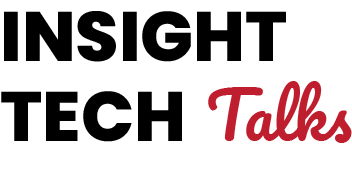Artificial Intelligence (AI) has emerged as a revolutionary tool in the healthcare industry, health plans Use AI transforming the way health plans operate. By leveraging AI technologies, top health plans are not only saving money but also working smarter to provide better services to their members.
Introduction to AI in Health Plans
In recent years, AI has gained prominence in various sectors, including healthcare. Health plans, in particular, have started embracing AI to address challenges such as rising costs, inefficient processes, and the need for personalized care.
Utilizing AI for Cost Reduction
Predictive Analytics
One of the primary ways AI helps health plans Use AI save money is through predictive analytics. By analyzing vast amounts of data, AI algorithms can forecast trends, identify high-risk individuals, and intervene early to prevent costly medical procedures.
Fraud Detection
AI-powered fraud detection systems are another valuable asset for health plans. These systems can detect suspicious patterns in claims data, flagging potential instances of fraud before they escalate. By minimizing fraudulent claims, that can significantly reduce financial losses.
Claims Processing
AI streamlines the claims processing workflow by automating repetitive tasks such as data entry and verification. This not only reduces the time and resources required for claims processing but also minimizes errors, leading to faster reimbursements and improved cash flow.
Enhancing Member Experience
Personalized Recommendations
AI algorithms analyze member data to generate personalized recommendations. From suggesting preventive screenings to lifestyle modifications, these recommendations empower members to take control of their health and reduce the need for expensive medical interventions.
Health Monitoring
AI monitoring tools enable to track members’ health in real-time. By collecting data from wearable devices and health apps, these tools provide valuable insights into members’ health status, allowing for proactive interventions and personalized care plans.
Improving Operational Efficiency
Automation of Administrative Tasks
AI automates routine administrative tasks such as appointment scheduling, billing, and paperwork processing. By eliminating manual intervention, that can streamline operations, reduce administrative costs, and allocate resources more efficiently.
Streamlining Communication
AI chatbots and virtual assistants enhance communication between health plans Use AI and their members. These tools provide instant support, answer frequently asked questions, and guide members through complex processes, improving overall satisfaction and loyalty.
Case Studies of Successful Implementation
Several top plans have successfully implemented AI technologies to achieve significant cost savings and operational improvements. For example, [Health Plan X] reduced claims processing time by 50% and saved $10 million annually by implementing AI-driven automation.
Challenges and Considerations
While AI offers immense potential, it also poses certain challenges and considerations. Data privacy and security are paramount concerns, requiring robust measures to safeguard sensitive information. Additionally, ethical considerations such as bias in algorithms and responsible AI use must be addressed.
Future Trends in AI for Health Plans
Looking ahead, the adoption of AI is expected to continue growing, driven by advancements in technology and increasing demand for efficient healthcare solutions. Future trends may include more sophisticated predictive analytics, AI-powered virtual care, and greater integration with electronic health records.
Conclusion
AI has become a vital tool for enabling them to save money and work smarter. By harnessing the power of AI for cost reduction, enhancing member experience, and improving operational efficiency, that can thrive in an ever-evolving healthcare landscape.





































